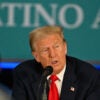Senator Patrick Leahy (D–VT), chairman of the Senate Judiciary Committee, has now said that “patent troll” reform legislation is no longer on the committee’s agenda. While it’s not necessarily dead in the water, patent litigation reform this year looks unlikely.
Starting last summer, the White House, Silicon Valley, and others pushed very strongly to pass a law—any law—that would help cure the problem of “patent trolls,” loosely defined as companies that buy up large numbers of patents and then demand payments from innocent end users such as coffee shops in order to avoid patent infringement lawsuits.
Heritage weighed in on the issue of patent trolls earlier this year as the debate was heating up. What we found was that in light of recent, major federal overhauls to the patent system, and given the risk of harming the little-guy garage inventors, patent reform needed to proceed cautiously.
On the other hand, some overly aggressive holders of questionable patents and their rapacious trial lawyers who seek to exploit the patent system for a quick buck are a real problem. For that reason, we said that patent law “tort reform”—including heightened pleading standards and loser-pays fee-shifting—might be a good idea.
Of course, it is exactly these types of reform proposals that made President Obama’s support for patent troll legislation unique. Yet a core constituency of the President—trial lawyers—strongly opposed patent reform. Perhaps out of fear that reform in the patent law context might bleed into other areas of our legal system, these lobbyists helped scuttle legislation.
To be sure, it wasn’t just trial lawyers—many inventors and free-market groups worried that overly broad legislation could stifle innovation. But the powerful influence of trial lawyers in opposing all legislative reforms that would reduce wasteful litigation costs was once again on display.



























